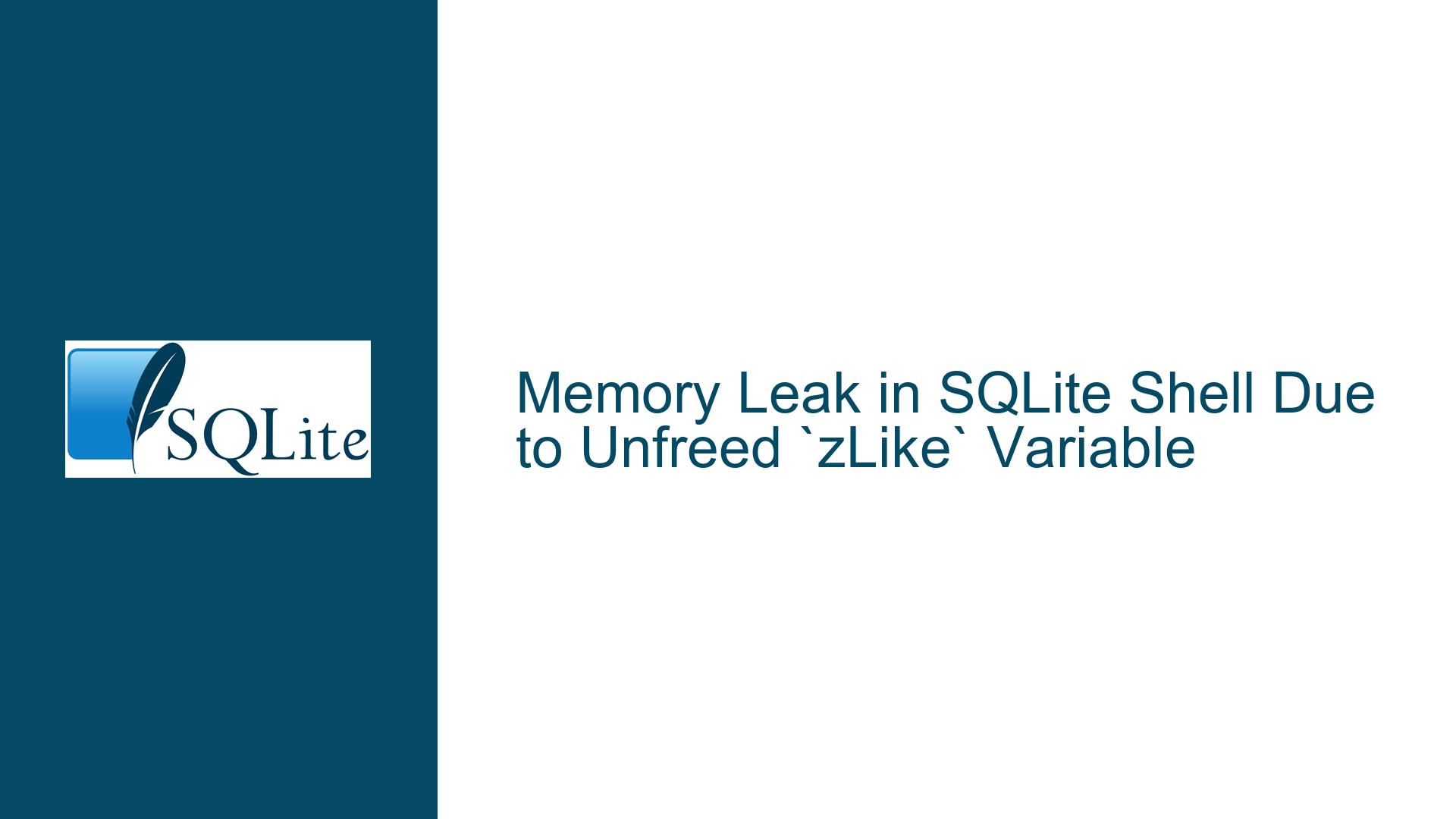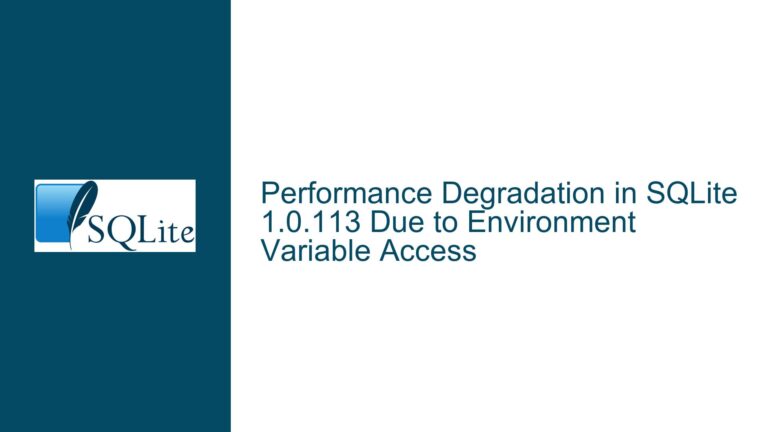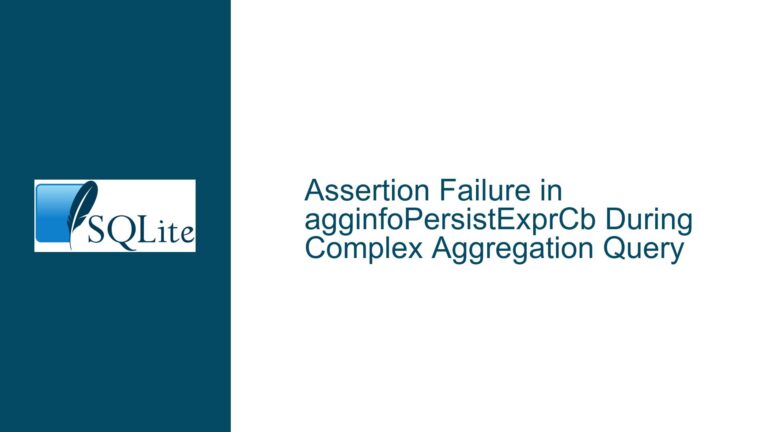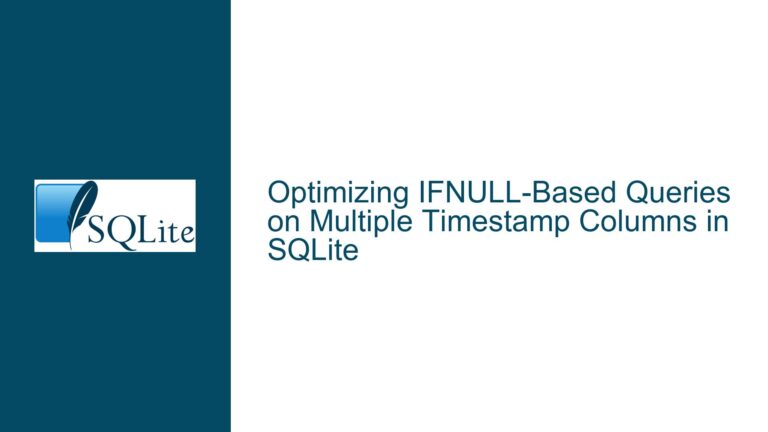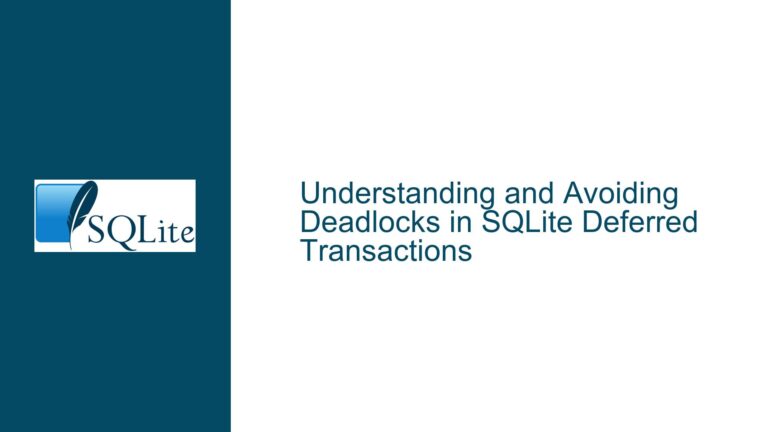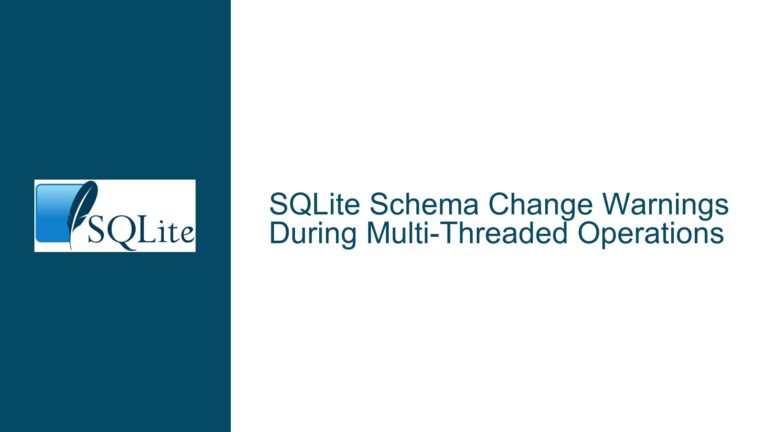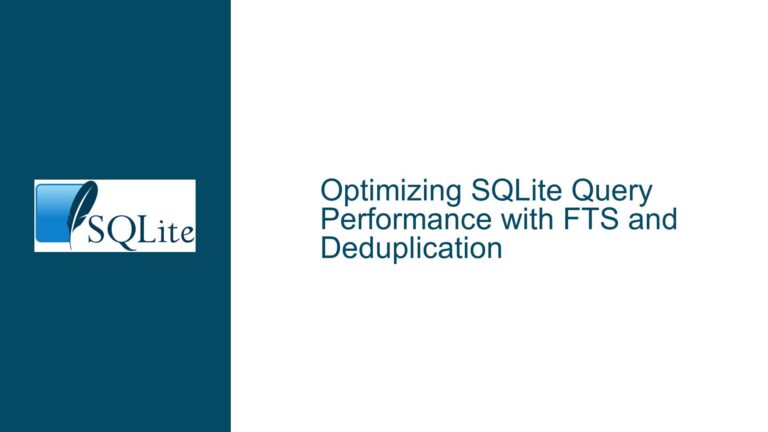Memory Leak in SQLite Shell Due to Unfreed `zLike` Variable
Memory Leak Detected in SQLite Shell During .dump Command Execution
The core issue revolves around a memory leak detected in the SQLite shell, specifically within the do_meta_command function. The leak occurs when the shell processes the .dump command with certain invalid or unsupported options. The memory leak is traced back to the zLike variable, which is allocated using sqlite3_mprintf but not freed in specific error-handling paths. This results in a direct memory leak of approximately 240-248 bytes, as reported by AddressSanitizer (ASAN).
The leak manifests when the shell encounters an unknown or unsupported option during the execution of the .dump command. The zLike variable, which is used to construct a SQL LIKE clause for filtering table names during the dump operation, is allocated memory dynamically. However, if the shell encounters an error (such as an unknown option or an unsupported feature due to compile-time flags like SQLITE_OMIT_VIRTUALTABLE), it exits the function prematurely without freeing the allocated memory for zLike.
The issue is particularly notable because the memory allocation and deallocation logic in the SQLite library is generally robust and well-tested. However, the shell component, which is a separate application built on top of the SQLite library, has a specific edge case where the memory management is not handled correctly. This edge case is triggered by invalid or unsupported input, leading to the observed memory leak.
Premature Function Exit Without Freeing zLike in Error Paths
The memory leak occurs due to premature exits in the do_meta_command function without proper cleanup of the zLike variable. The zLike variable is dynamically allocated using sqlite3_mprintf to construct a LIKE clause for filtering table names during the .dump command. However, when the shell encounters an error, such as an unknown option or an unsupported feature, it jumps to the meta_command_exit label without freeing the zLike variable.
The error paths in question are triggered by two specific conditions:
- When the
.dumpcommand is used with the--preserve-rowidsoption, but the SQLite library is compiled withSQLITE_OMIT_VIRTUALTABLE, rendering the option unsupported. - When the
.dumpcommand is used with an unknown option that the shell does not recognize.
In both cases, the shell prints an error message and sets the return code to indicate failure. However, the code jumps to the meta_command_exit label without freeing the zLike variable, leading to a memory leak. This oversight is particularly problematic because the zLike variable is allocated in a conditional block, and its allocation is not always followed by a corresponding free operation in all error paths.
The issue is compounded by the fact that the shell is a command-line tool, and such memory leaks, while small, can accumulate over time if the shell is used repeatedly in scripts or automated processes. This makes the issue more than just a theoretical concern, as it can lead to increased memory usage in long-running processes.
Implementing Proper Cleanup for zLike in Error Paths
To resolve the memory leak, the do_meta_command function must ensure that the zLike variable is freed in all error paths before exiting. The fix involves adding explicit calls to sqlite3_free(zLike) before jumping to the meta_command_exit label in the error-handling code. This ensures that the dynamically allocated memory for zLike is properly released, regardless of the execution path taken.
The following changes are necessary to fix the memory leak:
Add
sqlite3_free(zLike)Before Exiting on Unsupported Options: When the.dumpcommand is used with the--preserve-rowidsoption, but the SQLite library is compiled withSQLITE_OMIT_VIRTUALTABLE, the shell should free thezLikevariable before exiting. This ensures that the memory allocated forzLikeis released even when the option is unsupported.Add
sqlite3_free(zLike)Before Exiting on Unknown Options: When the.dumpcommand is used with an unknown option, the shell should free thezLikevariable before exiting. This ensures that the memory allocated forzLikeis released even when the shell encounters an unrecognized option.
The patch provided in the discussion addresses these issues by adding the necessary sqlite3_free(zLike) calls in the error paths. The modified code ensures that zLike is freed in all cases, preventing the memory leak. The patch is as follows:
@@ -7493,10 +7493,11 @@
if( strcmp(z,"preserve-rowids")==0 ){
#ifdef SQLITE_OMIT_VIRTUALTABLE
raw_printf(stderr, "The --preserve-rowids option is not compatible"
" with SQLITE_OMIT_VIRTUALTABLE\n");
rc = 1;
+ if( zLike ) sqlite3_free(zLike);
goto meta_command_exit;
#else
ShellSetFlag(p, SHFLG_PreserveRowid);
#endif
}else
@@ -7504,10 +7505,11 @@
ShellSetFlag(p, SHFLG_Newlines);
}else
{
raw_printf(stderr, "Unknown option \"%s\" on \".dump\"\n", azArg[i]);
rc = 1;
+ if( zLike ) sqlite3_free(zLike);
goto meta_command_exit;
}
}else if( zLike ){
zLike = sqlite3_mprintf("%z OR name LIKE %Q ESCAPE '\\'",
zLike, azArg[i]);
This patch ensures that zLike is freed in both error paths, preventing the memory leak. The fix is straightforward and effectively addresses the issue without introducing any new complexities or risks.
Additional Considerations for Memory Management in SQLite Shell
While the immediate issue is resolved by the patch, it is worth considering broader implications for memory management in the SQLite shell. The shell is a powerful tool that is often used in automated scripts and long-running processes, making robust memory management critical. Here are some additional considerations:
Consistent Error Handling: Ensure that all error paths in the shell consistently free any dynamically allocated memory. This includes not only
zLikebut also other variables that may be allocated during command execution.Testing with Edge Cases: The shell should be tested with a wide range of input, including invalid or unsupported options, to ensure that memory leaks do not occur in other parts of the code. Automated testing with tools like AddressSanitizer can help identify such issues early.
Documentation and Code Reviews: Maintain thorough documentation of memory management practices in the shell codebase and conduct regular code reviews to catch potential memory leaks or other issues before they reach production.
By addressing these broader considerations, the SQLite shell can maintain its reputation as a reliable and efficient tool for interacting with SQLite databases. The fix for the zLike memory leak is a step in the right direction, but ongoing vigilance is necessary to ensure the shell remains robust in all scenarios.
